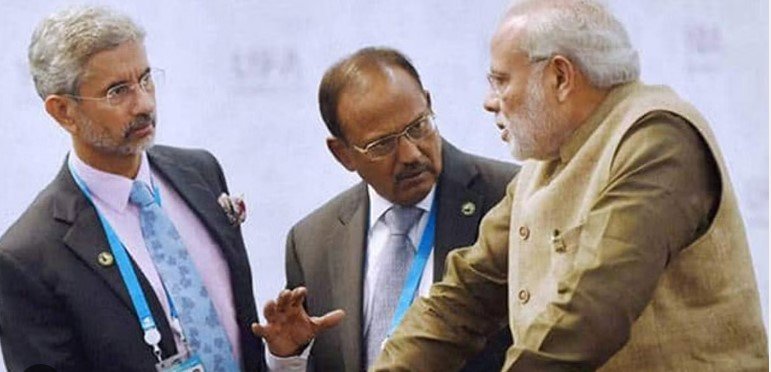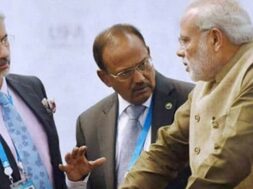
Roving Periscope: Ahead of PM Modi’s US visit, India puts pressure on China
Virendra Pandit
New Delhi: Nearly three weeks before Prime Minister Narendra Modi’s first State Visit to the United States (June 21-24), and amid a move to induct India into NATO, External Affairs Minister S. Jaishankar’s latest remarks that New Delhi is facing a “very complicated challenge” from Beijing in the last three years is a fresh Indian pressure on the recalcitrant neighbor to resolve all pending bilateral border issues, or else….!
As PM Modi packs his bags for his much-anticipated State Visit to the US next month, a US Congressional Select Committee on Chinese Communist Party (CCP) recently recommended that India should be made a part of the NATO-Plus group, which currently has five members–Australia, New Zealand, Japan, Israel, and South Korea. It works toward boosting global defense cooperation.
Dr. Jaishankar said India is ensuring that no attempt is made to unilaterally change the status quo in the border areas, the media reported on Monday.
“There are clearly responses that are required, and those responses have been undertaken by the government,” he said. “And a lot of it to ensure that no attempt is made to unilaterally change the status quo in the border areas.”
Ties between India and China have remained particularly strained since China invaded Galwan Valley in Eastern Ladakh in June 2020, killing at least 20 Indian soldiers. Tensions had flared at multiple friction points, with both countries stationing tens of thousands of troops backed by artillery, tanks, and fighter jets. The two countries have since been locked in a border row and held nearly 20 rounds of talks to “de-escalate” tensions.
Tensions between the two countries escalated once again on December 9, 2022, when the Chinese troops tried to change the status quo and attacked Indian soldiers in the Tawang Sector of the Line of Actual Control (LAC) in Arunachal Pradesh.
In March also, Dr. Jaishankar said that relations between New Delhi and Beijing cannot return to normal until the border dispute is resolved in line with a September 2020 “in-principle agreement” that he had reached with former Chinese Foreign Minister Wang Yi.
On Saturday last week, he said that New Delhi and Beijing will have to find some kind of equilibrium and that all the previous governments had tried to find a balance in their own ways. Mutual respect, sensitivity, and interest have to be the basis of the relationship.
On June 21, US President will host PM Modi at the White House, and also organize a State Dinner for him on June 22.
If India becomes a NATO-Plus member, it will be able to seamlessly share intelligence with the other five countries.
The House Select Committee on the Strategic Competition between the US and the CCP, led by Chairman Mike Gallagher and Ranking Member Raja Krishnamoorthi, overwhelmingly adopted a policy proposal to enhance Taiwan’s deterrence, including strengthening NATO Plus to include India.
“Winning the strategic competition with the Chinese Communist Party and ensuring the security of Taiwan demands the United States strengthen ties to our allies and security partners, including India. Including India in NATO Plus security arrangements would build upon the US and India’s close partnership to strengthen global security and deter the aggression of the CCP across the Indo-Pacific region,” the Select Committee recommended.
According to its official website, the Select Committee on the CCP is “committed to working on a bipartisan basis to build consensus on the threat posed by the Chinese Communist Party and develop a plan of action to defend the American people, our economy, and our values.”
Indian-American Ramesh Kapoor, who has been working on this proposal for the past six years, said this is a significant development. He expressed the hope that the recommendation would find a place in the National Defense Authorization Act 2024 and finally end up becoming a law of the land.
The Committee believes that hitting China with economic sanctions in case it plans to attack Taiwan is the most effective way key allies like G-7, NATO, NATO+5, and Quad members join, and negotiate a joint response, and broadcasting this message publicly has the added benefit of enhancing deterrence.













